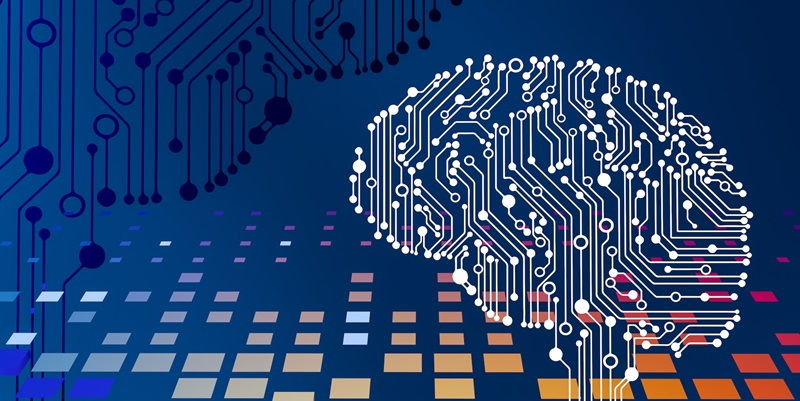Artificial Intelligence (AI) has become an integral part of the corporate landscape, revolutionizing industries and driving innovation. However, as AI systems become more advanced and pervasive, companies are faced with the imperative to implement transparent and ethical AI systems. This is crucial not only to ensure ethical decision-making but also to gain the trust of stakeholders. In this article, we will explore the challenges and opportunities presented by AI in the corporate world and discuss the essential elements needed for positive change.
The Automation Prediction
Recent studies suggest that up to 30% of current work hours in the UK economy could be automated by 2030. This prediction highlights the urgent need for companies to prioritize upskilling their workforce. With automation on the rise, employees must be equipped with the necessary skills and knowledge to adapt and thrive in the evolving job landscape. This proactive approach will not only benefit businesses but also help avoid potential societal upheaval caused by mass unemployment.
Preparing for the Evolving Job Landscape
Preparing employees for the changes brought about by AI is a significant challenge faced by companies. The skills required for many jobs are rapidly changing, and individuals must be trained to remain competitive. This may require comprehensive retraining programs and partnerships with educational institutions to bridge the skills gap. By investing in employees’ development, companies can create a more agile and resilient workforce, better equipped to navigate the evolving job market.
Balancing AI for Safety and Individual Freedoms
As companies leverage AI to enhance safety and efficiency, it is crucial to strike a balance that also protects individual freedoms. While AI has the potential to optimize processes and minimize risks, it is equally important to ensure that the technology respects privacy, autonomy, and human rights. Embedding transparency and accountability into AI systems can help maintain this delicate equilibrium, ensuring that technology serves as a tool for progress rather than an instrument of control.
Addressing Bias in AI Systems
AI systems, despite being perceived as objective, are not immune to the biases inherent in their human creators. These biases can manifest in various ways, such as discriminatory algorithms or unequal representation in training datasets. Moreover, the homogeneity of AI researchers and developers exacerbates the problem, as diverse perspectives are essential in identifying and rectifying biases. Companies must actively address and mitigate bias in AI systems to avoid perpetuating societal inequities and putting minority populations at risk.
Prioritizing Fairness and Inclusivity
To ensure the ethical implementation of AI, the corporate world must prioritize fairness and inclusivity. This means actively combating bias, reducing disparities, and promoting equal opportunities for all individuals. By fostering diversity in AI research and development, companies can bring a range of perspectives to the table and design AI solutions that are inclusive and representative of diverse populations. This approach not only reduces the potential for bias but also ensures that AI technologies are fair, just, and beneficial for everyone.
Opportunities Presented by AI
Amidst the challenges, AI presents numerous opportunities for businesses. By harnessing the power of AI, companies can streamline operations, personalize customer experiences, and make data-driven decisions. AI can automate repetitive tasks, freeing up employees to focus on more creative and strategic endeavors. Smart algorithms can analyze vast amounts of data to identify patterns and trends, enabling businesses to gain valuable insights and make informed decisions. Moreover, AI-powered technologies can improve efficiency, reduce costs, and enhance overall competitiveness.
Fostering Diversity, Equity, and Inclusion
AI can also play a pivotal role in fostering diversity, equity, and inclusion in the workplace. By minimizing bias in recruitment processes and performance evaluations, AI technologies can help organizations build diverse and inclusive teams. AI can also support accessibility by providing solutions for individuals with disabilities. Moreover, by promoting fairness and equal opportunities, AI can contribute to breaking down barriers that hinder diversity and perpetuate inequalities in the corporate world.
The Essential Elements for Positive Change
To ensure that AI becomes a force for positive change in the corporate landscape, certain essential elements must be prioritized. Transparency is key, as it builds trust and allows stakeholders to understand and scrutinize how AI systems make decisions. Ethical considerations must guide every aspect of AI development, ensuring that the technology aligns with moral and societal values. Additionally, a commitment to inclusivity is essential. By embracing diverse perspectives, companies can design AI systems that are unbiased, fair, and beneficial for all.
The corporate world stands at a crucial juncture as AI becomes increasingly integrated into business operations. To navigate this transformative era successfully, companies must proactively implement transparent and ethical AI systems. By upskilling the workforce, prioritizing fairness and inclusivity, and striking a balance between leveraging AI for safety and protecting individual freedoms, organizations can harness the potential of AI while ensuring ethical decision-making and gaining the trust of stakeholders. By embracing the opportunities presented by AI and committing to transparency, ethics, and inclusivity, businesses can pave the way for a brighter and more equitable future.

